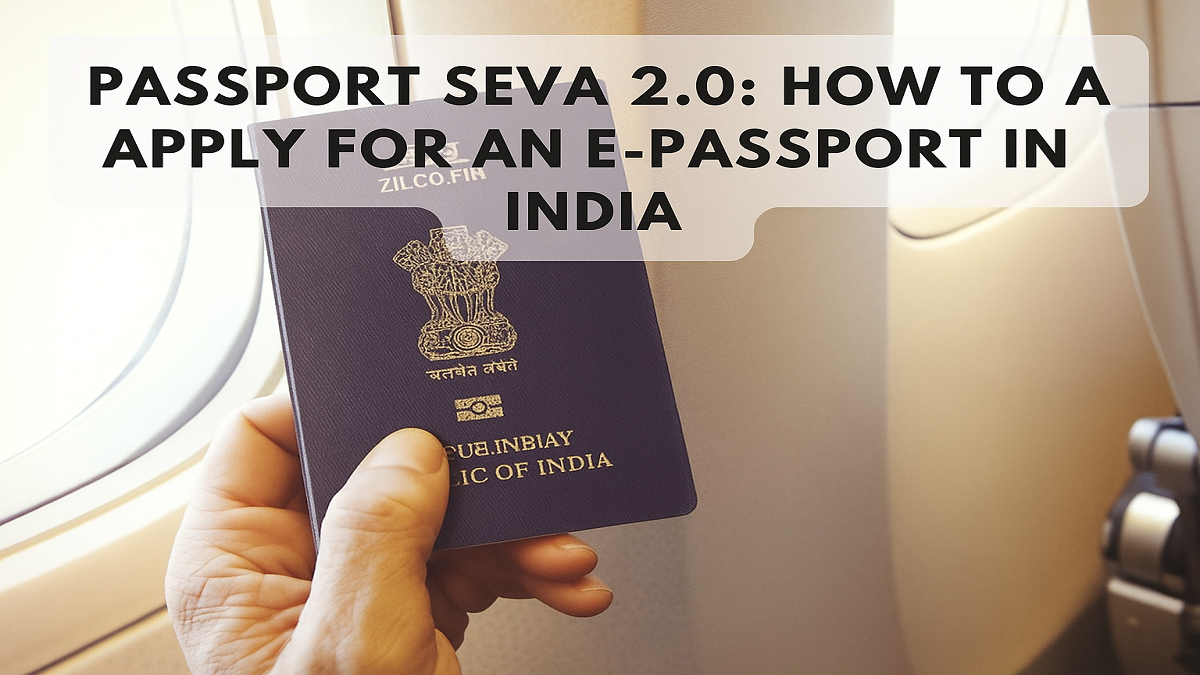On the occasion of the 13th Passport Seva Divas, India marked a significant milestone in its passport issuance system with the nationwide rollout of the e-Passport under the upgraded Passport Seva Programme (PSP) Version 2.0. This initiative is part of a broader effort to make government services more transparent, efficient, secure, and digitally enabled.
Unveiled by External Affairs Minister Dr. S. Jaishankar, this modernization initiative aims to revolutionize how passports are issued, verified, and used both domestically and internationally.
What is an e-Passport?
An e-Passport is an electronic passport that includes an embedded microchip which stores the biometric and demographic data of the passport holder. This smart chip enhances data security, facilitates contactless immigration, and makes the passport tamper-proof.
Key Features of the e-Passport:
- Embedded electronic microchip.
- Stores biometric information (like fingerprints and facial recognition data).
- Machine-readable, enhancing immigration efficiency.
- Offers better protection against identity theft and forgery.
- Compatible with International Civil Aviation Organization (ICAO) standards.
Passport Seva Programme 2.0 (PSP V2.0): An Overview
The launch of Passport Seva 2.0 reflects India’s vision to upgrade its public services using advanced digital tools and automation. Under PSP V2.0:
- Back-end infrastructure has been revamped using cloud-based platforms and AI-enabled features.
- Data analytics and real-time tracking improve operational transparency.
- A seamless interface connects the Ministry of External Affairs (MEA), Passport Seva Kendras (PSKs), and Post Office Passport Seva Kendras (POPSKs).
In addition, pilot testing of the Global Passport Seva Programme V2.0 is underway to enable Indian embassies and consulates to issue e-passports in future phases.
Benefits of the e-Passport Initiative
This transformative step aims to:
- Simplify the travel experience for Indian citizens.
- Speed up the immigration clearance process.
- Reduce the risk of document fraud.
- Improve data protection and privacy through secure encryption.
The chip can be scanned instantly, making e-passports ideal for international airports where automated gates are used for quicker verification.
How to Apply for an e-Passport in India
To apply for an e-passport, Indian citizens must use the official Passport Seva Portal maintained by the Ministry of External Affairs. The application process is digital-first, with physical visits only required for biometric and document verification.
Step-by-Step Application Process:
1. Visit the Passport Seva Website
Go to passportindia.gov.in – the official portal for all passport-related services in India.
2. User Registration
-
If you’re a new user, register by creating an account using your email and mobile number.
-
Existing users can directly log in using their credentials.
3. Fill Out the Application Form
Once logged in:
-
Select “Apply for Fresh Passport/Re-issue of Passport”.
-
Choose the option that mentions e-Passport, if available in your region.
-
Enter all personal, contact, family, and emergency details.
4. Select Service Location
Choose your preferred Passport Seva Kendra (PSK) or Post Office Passport Seva Kendra (POPSK) based on convenience and availability.
5. Fee Payment
-
Pay the required e-passport application fee via net banking, debit/credit card, or UPI.
-
Fee details may vary depending on the type of passport (normal/tatkaal) and pages (36 or 60).
6. Book Appointment
-
After successful payment, select a suitable date and time slot for visiting the PSK or POPSK.
-
Ensure you download or take a printout of the appointment confirmation receipt.
7. Physical Visit for Biometric Capture
-
Visit the chosen centre at the scheduled time with original documents (Aadhaar, address proof, etc.).
-
Your biometrics, photograph, and signature will be captured.
-
Documents will be verified by officials at the service centre.
Documents Required for e-Passport
While the list can vary depending on your profile, some commonly required documents include:
- Proof of Address (Aadhaar, Voter ID, Electricity Bill, etc.)
- Proof of Date of Birth (Birth certificate, school certificates)
- Aadhaar Card
- PAN Card (if applicable)
- Old Passport (in case of reissue)
Important Notes
- As of now, not all PSKs/POPSKs may issue e-passports. Rollout is being conducted in phases.
- Applicants will receive an e-passport only if their application is processed at a center equipped with the necessary technology.
- e-Passports are visually identical to regular passports, except for a symbol on the cover indicating the presence of a chip.



 Which Indian State was the First to Chan...
Which Indian State was the First to Chan...
 Which Waterfall is known as the Monsoon ...
Which Waterfall is known as the Monsoon ...
 Which Sea is known as the Lake of Tiberi...
Which Sea is known as the Lake of Tiberi...








